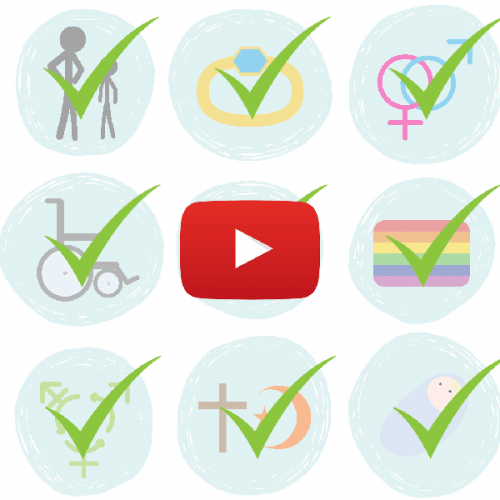
Why Diversity and Inclusion in Sport will never be 'common sense'
This guest article was written by Lyndon Roberts from Inclusion in Sport, our partners for our new Equality and Diversity in
It's been a busy year on the diversity and inclusion front, in sport, yet again in 2018. As I write this, the current debate is around the media's treatment of England and Manchester City's Raheem Sterling. Generally, a day doesn't go by without something relating to this topic hitting the back (or front) pages of newspapers.
One of the most common rebuttals to the line of work I am in, is that it's 'common sense'. The problem sport has had, and still has, is that the sense applied has been marginalising huge numbers of people from sport and physical activity for generations. Every Sport Governing Body across the country will have data on its members and participants and what it shows us is that, despite some progress over the last decade, women, people from black, Asian and minority ethnic communities, people that identify as LGB+, people with a disability or transgender people are likely to be underrepresented when it comes to taking part in sport and physical activity.
We have seen some great successes; just look at the recent Sports Personality of the Year awards. Billie Jean King picked up the Lifetime Achievement award for her tireless work for women's equality in tennis. It's taken decades but there's no doubt there's greater parity in women's tennis now as a result. Similarly, England Netball picked up Team of the Year and Sporting Moment of the Year for their remarkable performance, despite funding challenges as the countries fastest growing female sport, and Kirsty Ewen won the Unsung Hero award for overcoming mental health issues and volunteering in swimming. So, in one way or another, the equality agenda affects all of us; we all have a gender, sexual orientation, ethnicity, age etc.
When people say to me, 'this equality stuff is political correctness gone mad' my response is, yes it is political correctness and the reason it needs to go 'mad' is that people still receive racist, homophobic, sexist or disability-based discrimination on a daily basis within the sports sector. Is it really madness to stop this? Regarding the politically correct part of that sentence, well that's just the law isn't it? So what people are literally saying is that it's 'mad' for people to ask them to comply with the law. So when people demand the right to say what they like; let them, however, it's your right to tell someone about it if you don't like what they're saying.
This type of behaviour happens in a variety of ways; from the overt racism we have witnessed from supporters in football stadia over the last few weeks (which hasn't just resurfaced from the 1980's), the removal of funding from female sports, the lack of diversity across Governing Body boards or the casual homophobia that people might experience at their local club.
There have been huge advances in recent times, however, and it's important to recognise that with limited expertise and insight, sport has been making steps in the right direction. The advance of campaigns like Stonewall's Rainbow Laces shows just how much can be achieved when people commit to celebrating diversity in sport. England has incredibly successful netball, cricket, winter sports athletics and football teams, amongst other sports. We produce an incredible depth of para-athletes in this country and also have some fantastic role models representing the LGBT+ community, in Tom Bosworth, Sophie Cook, Charlie Martin and more.
Ultimately, this 'common sense' approach to diversity and inclusion is impacted upon by every decision we make. Whether it's which team to fund, which player is picked on the team or what images we put on our website. All of these smaller details that we might think don't matter or are common sense, contribute to different people's view of your organisation. What diversity and inclusion isn't is red tape or a barrier for you doing things; if anything it's the exact opposite, it's a huge opportunity for your team, club, organisation or sport to attract new members, improve your performance, make better decisions and be more successful. By making opportunities in sport open to all and knocking the 'common sense' myth out of the park, this won't take anything away from people's current experience of sport.
Equality and Diversity in Sport training course
Inclusion in Sport is EduCare's partner for our new Equality and Diversity in Sport training course. The course is available to buy online and has been added to our cost-effective training package for the sports and leisure sector - EduCare for Sport.
EduCare for Sport is available in two options, a smaller package for Volunteers which contains six courses and costs £40 per learner, and a larger set of courses for Sports Clubs and Leisure Providers that contains sixteen courses and starts at £75 per learner. Costs per learner reduce when purchasing for more than three learners.
Get in touch to find out more
Never miss an update
To receive the latest news and offers, click below
Related content:
Video: What is the Equality Act?
The Equality Act 2010 legally protects people from discrimination in the workplace and in wider society. Watch this video to find out more
Read more
